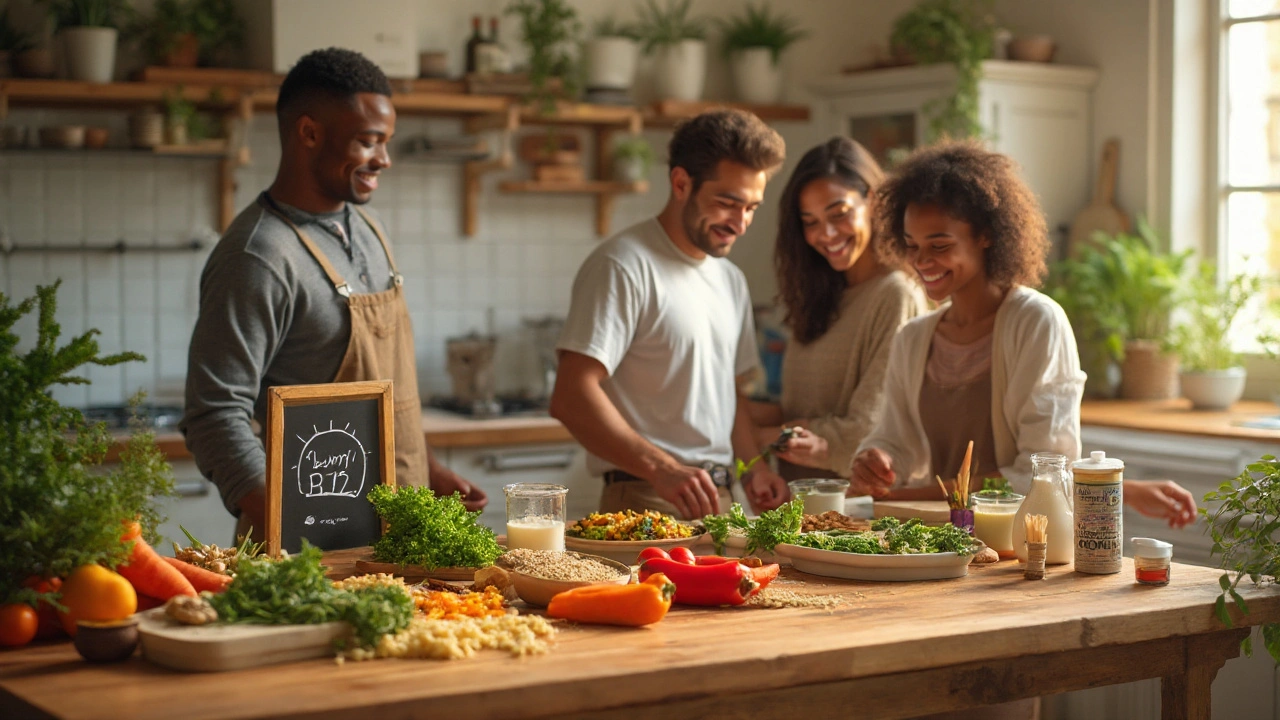B12 deficiency in vegans – what you need to know
If you follow a vegan diet, you’re already doing a lot for the planet and your health. But there’s one nutrient that can slip through the cracks: vitamin B12. Unlike most vitamins, B12 isn’t made by plants, so vegans have to get it from fortified foods or supplements. Missing out can lead to fatigue, nerve problems, and more. Below we break down the real signs to watch for and practical ways to stay covered.
Common signs of B12 deficiency
Because B12 helps make red blood cells and keep nerves working, low levels show up in everyday ways. You might feel unusually tired even after a solid night’s sleep. Mood swings, mild depression, or trouble focusing are also red flags – B12 plays a role in brain chemistry. On the physical side, you could notice tingling or numbness in your hands and feet, a condition called peripheral neuropathy. Some people develop a smooth, shiny tongue or a mild fever without an obvious cause. If you’re seeing any of these symptoms and you’re vegan, it’s worth getting your B12 checked.
How vegans can keep B12 levels up
The easiest fix is a reliable B12 supplement. Look for cyanocobalamin or methylcobalamin tablets or sublingual drops that provide at least 250 µg once a week, or a daily dose of 25‑100 µg if you prefer consistency. Many vegans find a weekly supplement less hassle.
Fortified foods are another solid option. Breakfast cereals, plant milks, nutritional yeast, and some meat‑free burgers often have B12 added. Just check the label – you’ll need 2.4 µg per day for adults, and most fortified products give you 25‑100 % of that in a single serving.
If you love cooking, sprinkle fortified nutritional yeast over popcorn or pasta. It adds a cheesy flavor and a B12 boost without any animal products. Some brands even sell B12‑infused oat or almond milk, which can be a quick way to get your daily dose.
Remember that homemade fermented foods like tempeh or sauerkraut don’t naturally contain B12, unless they’re specifically fortified. So don’t rely on those alone.
Finally, keep an eye on your overall diet. Iron, folate, and vitamin D all interact with B12 metabolism. A balanced vegan plate with leafy greens, beans, nuts, and fortified foods reduces the chance of multiple deficiencies piling up.
Bottom line: B12 isn’t something you can get from plants alone, but staying healthy as a vegan is simple with the right supplement or fortified food. Spot the warning signs early, choose a reliable B12 source, and you’ll keep your energy and nerves in top shape.






